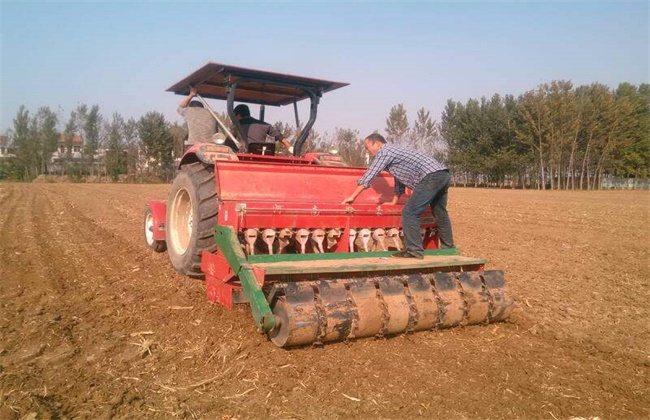How to avoid antagonism between fertilizers
Antagonism is often encountered in the process of fertilization, commonly known as element fighting, which is often common in major producing areas, which is due to chemical reactions caused by improper fertilization, resulting in the formation of insoluble substances, resulting in crops can not absorb. So what can we do to avoid elemental antagonism? Come and have a look with the editor.

First, the cause of element antagonism
1. Excessive fertilization
Excessive fertilization during fertilization is very likely to produce antagonism, such as the common partial application of potassium fertilizer, will cause concentration barriers, resulting in increased risk of crop infection of diseases and insect pests, resulting in antagonistic effects of elements such as calcium, magnesium and boron in soil and plants. If the circumstances are more serious, there will be other problems, or even a serious reduction in production. For example, partial application of nitrogen fertilizer will also cause potassium deficiency; partial application of phosphorus fertilizer will inhibit the absorption of nitrogen by crops, resulting in nitrogen deficiency. Therefore, we should have a full understanding of the nutrients that crops need to maintain before fertilization to avoid this situation.
2. Synchronous fertilization
Simultaneous fertilization can also cause antagonism, for example, phosphate fertilizer and zinc fertilizer can not be applied at the same time, because they will produce element reaction, form insoluble precipitation and reduce the utilization rate of elements.
3. Soil pH
The acidity and alkalinity of soil may also bring. Acidic soil can antagonize the absorption of cations, while alkaline soil can also antagonize the absorption of anions.
Second, how to avoid antagonism
1. Understand the properties of fertilizer
Before fertilizing and supplementing nutrients, be sure to have a clear idea of the elements needed by crops, and then understand whether there will be antagonism between them, whether it is caused by partial application of nitrogen fertilizer or simultaneous fertilization, which should be understood clearly. It is helpful for us to fertilize correctly.
2. Farm manure must be mature
Farm manure must be fully mature before application, which can not only supplement sufficient elements, but also increase the content of soil organic matter and effectively improve soil structure. If it is immature farm manure, it will continue to ferment and mature after application, causing root system burns and carrying germs and eggs.
3. Use organic fertilizer
Organic fertilizer contains not only large and medium trace elements needed for plant growth, but also rich organic nutrients, which can effectively improve soil properties and biological characteristics, enhance soil water and fertilizer conservation, and create suitable soil for crop growth and development. In addition, the rational combined application of organic fertilizer and chemical fertilizer can complement and promote each other, which is beneficial to crop absorption, improve fertilizer use efficiency, buffer or reduce the antagonism between nutrients.
4. Fertilization according to soil properties.
In potassium-deficient plots, nitrogen and potash should be matched reasonably, but potash should not be used at one time, because potassium ions can also antagonize the similarity of calcium, magnesium and ammonium.
The above is the introduction of how to avoid antagonism between fertilizers. I hope it can help you. If you want to know more about it, please follow us.
Related
- Fuxing push coffee new agricultural production and marketing class: lack of small-scale processing plants
- Jujube rice field leisure farm deep ploughing Yilan for five years to create a space for organic food and play
- Nongyu Farm-A trial of organic papaya for brave women with advanced technology
- Four points for attention in the prevention and control of diseases and insect pests of edible fungi
- How to add nutrient solution to Edible Fungi
- Is there any good way to control edible fungus mites?
- Open Inoculation Technology of Edible Fungi
- Is there any clever way to use fertilizer for edible fungus in winter?
- What agents are used to kill the pathogens of edible fungi in the mushroom shed?
- Rapid drying of Edible Fungi



